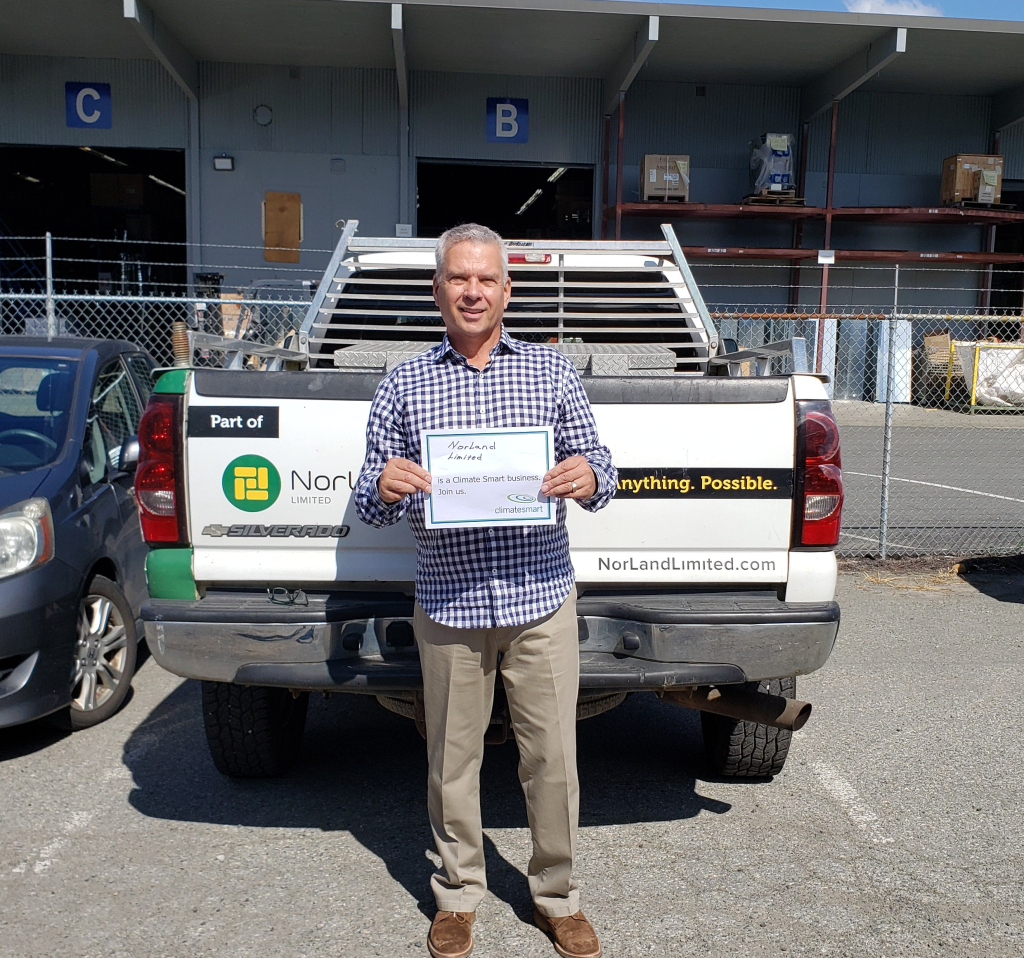Climate Smart: How NorLand is Creating Change
2020 has been a challenging year – whether it be the COVID-19 pandemic, or the light being shed on racial injustices – we are all coming out of our comfort zones and learning. One thing that these challenges have in common though, is that they’re all creating change.
The Black Lives Matter (BLM) Movement is gaining incredible traction and forcing society’s eyes towards the mirror in the fight against racism. Likewise, COVID-19 has shown us new ways of living; including how we can live with less transportation, and how this can reduce global pollution.
So, if society can change when it’s necessary, why can’t we choose to make positive changes?
The Earth’s temperature is rising because we as humans are living unsustainably, and we are proud to announce that we’re one of the companies working to change that.
At the end of July, we as a company achieved a certification that has helped us calculate our Greenhouse Gas (GHG) emissions for 2019 and created a plan to reduce our GHG emissions over the next 2 years. This certification is called Climate Smart.
It was an extensive process that was led by Hayden Gould (Impact & Sustainability Coordinator), Ryan Keenan (Logistics Coordinator, Equipment & Assets), Sydney Wanchulak (Impact & Sustainability Manager), and Cherry Trinidad (no longer with NorLand).
The journey involved attending 3, 4-hour long sessions where our team went through training on what to measure, where to reduce, and how to continue reducing our GHG emissions into the future.
In the first session our team learned about climate change and how our planet is warming due to the level of CO2 (carbon dioxide) emissions along with other GHG emissions increasing in our atmosphere. We went through examples in Canada that we can see from climate change – like the pine beetles eating through the pine tree population in BC due to warmer winters; and the 100 year floods a few years ago on the east coast.
After this intense discussion, the team mapped out our operations and emission sources… here are the pictures they drew for this activity.
After this first session, the team embarked on determining how to capture all the information needed to calculate our emissions. Initially, they thought they could tackle this in one month… in reality, it took them a total of 6 months to complete!
They went into their second session, a month after the first one, to learn about reduction ideas and to share information with other companies that were in the Climate Smart training as well. They came back with some cool ideas related to our fleet and fuel usage, from fuel efficiency training and how to make our people aware of idling rates, to how to get ideas from our employees, and implement them.
The third session was focused on building buy-in within the organization, behavioral change conversations (a good book on this is Switch – How to Change Things When Change is Hard – by Chip and Dan Heath), and building momentum within the company. The team walked away from the session renewed and ready to come up with their plan on how to reduce emissions at NorLand!
Fast forward through a few months of data gathering, the team created a reduction strategy for NorLand – but after looking at where the emissions are generated, they quickly discovered that majority of emissions are created at the business unit level.
The team then came up with the idea that each business unit should have its own reduction strategy; so, they housed an information session with key individuals in the Business Units and talked about Climate Smart, where our emissions are, and where we want to go.
To carry on this initiative, three of our business units, LNS Service, Western Grater Contracting, and Pacific Industrial Movers, are working with our Impact & Sustainability Team to plan their individual reduction strategies and start working on the low hanging fruit in 2020, while striving for more in 2021!
September 15, 2020
